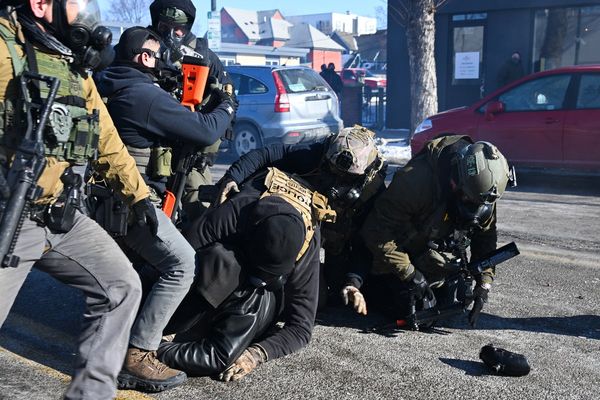
In a recent development, the Supreme Court has rejected Special Counsel Jack Smith's request to expedite the review of former President Donald Trump's defense of presidential immunity. As a result, the case, currently pending in front of Judge Tanya Chutkin in the district court in D.C., will now be argued in front of an appellate court three-judge panel on January 9. Subsequently, it is likely to be brought before the full appellate court en banc before potentially returning to the Supreme Court.
This decision by the Supreme Court significantly reduces the possibility of Donald Trump facing trial as originally scheduled for March 4, as the case faces further delays within the appellate process. Trump's legal team had sought this delay, and it appears their strategy has succeeded thus far.
Last week, concerns were raised about Special Counsel Jack Smith's motivations, namely his desire to expedite the trial before the upcoming elections. It was noted that Smith failed to explicitly acknowledge this underlying motivation in his filings and instead spoke in generalities about urgency and public interest.
Smith's rush to bring the case directly to the Supreme Court was deemed purely political by critics. The argument was made that he feared a Trump victory in the upcoming elections could result in the charges being dropped or a self-pardon, effectively ending the prosecution permanently. However, Smith's failure to address these concerns directly in his recent filings has invited further scrutiny of his actions.
Several observers, including former prosecutor Ellie Honig, have pointed out the potential impact of the election calendar on Smith's handling of the case. It is argued that the public has a right to know if a presidential candidate is a convicted felon before casting their votes. Furthermore, the passage of time between a potential Trump election victory and any resolution of the charges could result in fading memories and potential loss of witnesses.
The Supreme Court's decision now places the outcome of this case, challenging Trump's assertion of presidential immunity, in the hands of the appellate court system. This case, along with others concerning the January 6th defendants and a state challenge to Trump's qualification under Section 3 of the 14th Amendment, will have significant implications on the upcoming presidential election.
As the urgency surrounding this case persists, there is a growing expectation for Jack Smith to provide a more transparent explanation for the need for expedition, particularly in light of the looming elections. Failure to do so risks further delays and diminishes the credibility of the Department of Justice in the eyes of the public.
In summary, the Supreme Court's rejection of the request for expedited review adds uncertainty to the timeline for Trump's trial, casting doubt on the possibility of it occurring before the general election. It remains to be seen whether Special Counsel Jack Smith will acknowledge the influence of the election on the case or continue to provide vague justifications for his sense of urgency. The outcome of this case now rests in the hands of the appellate courts, with potentially far-reaching consequences for the upcoming presidential election.









